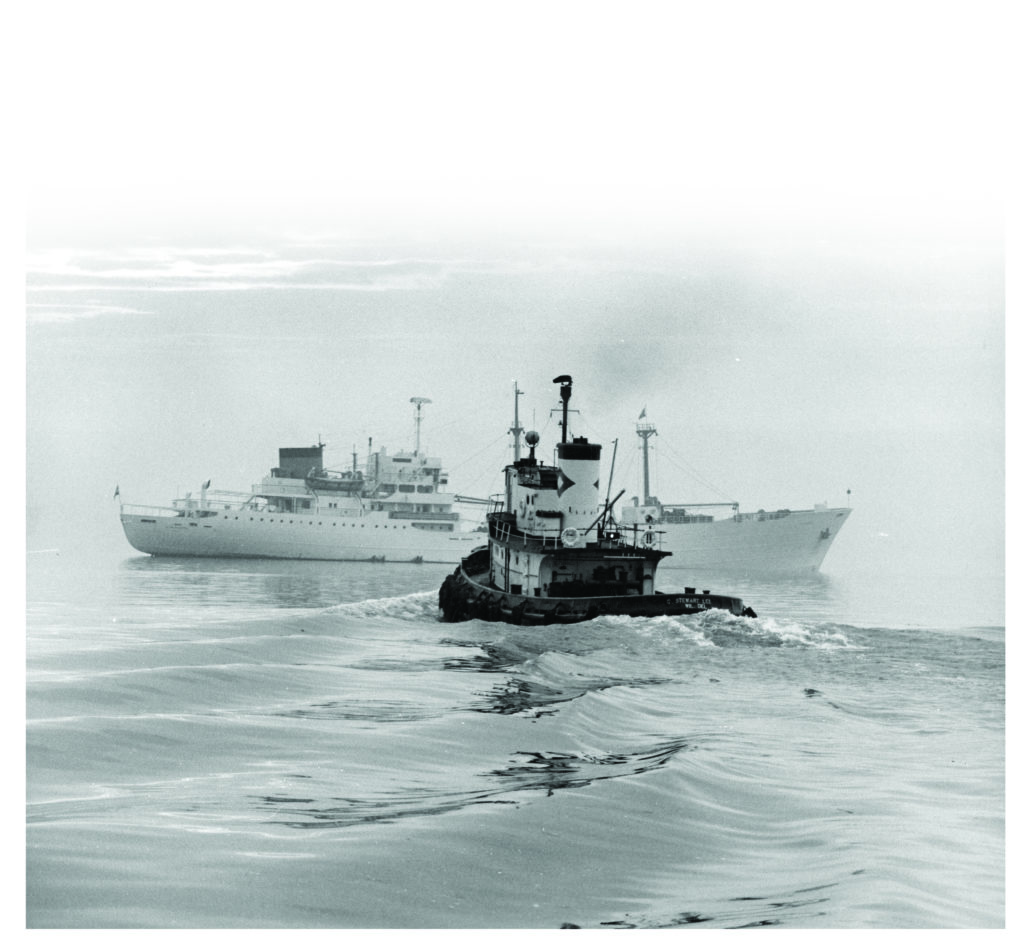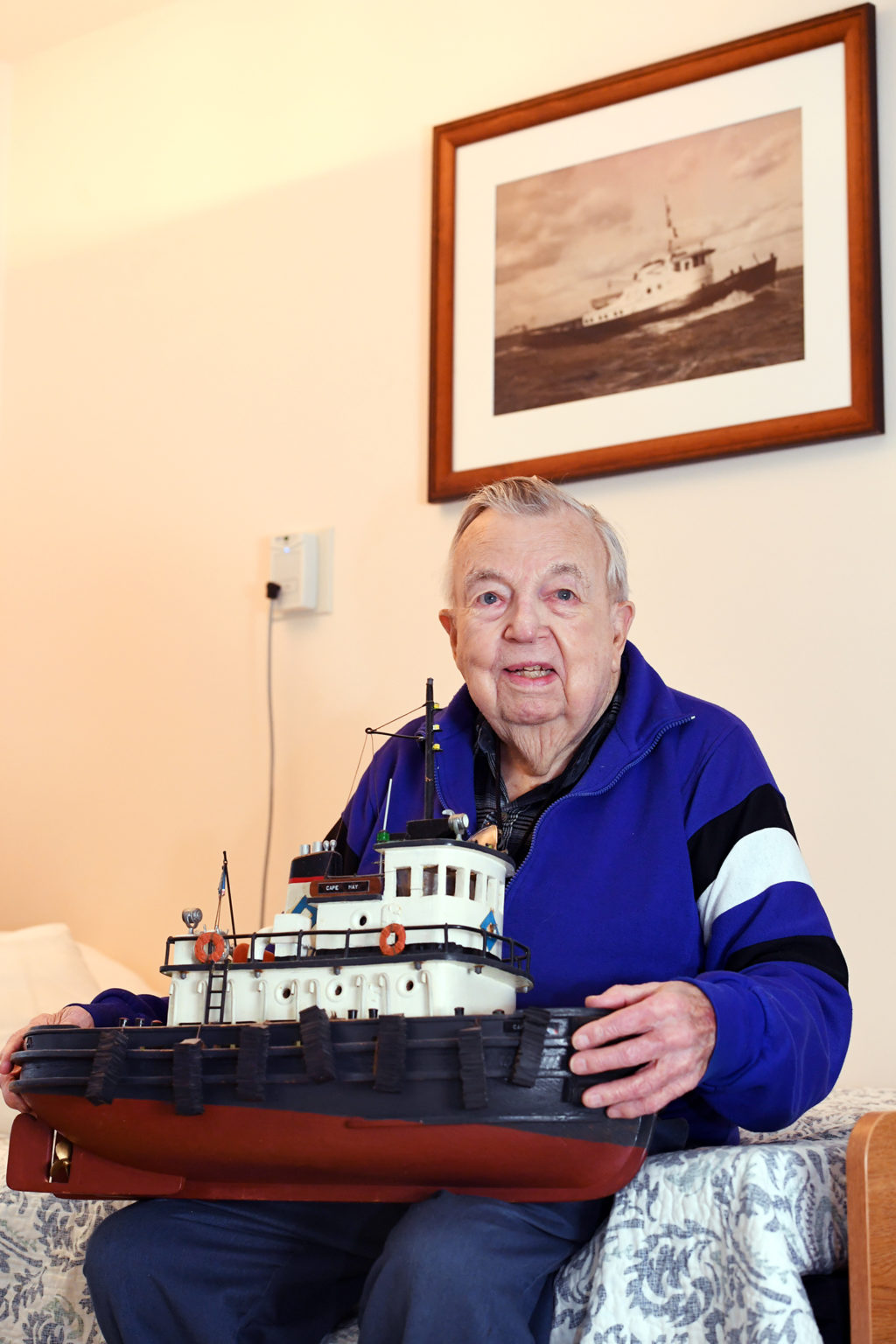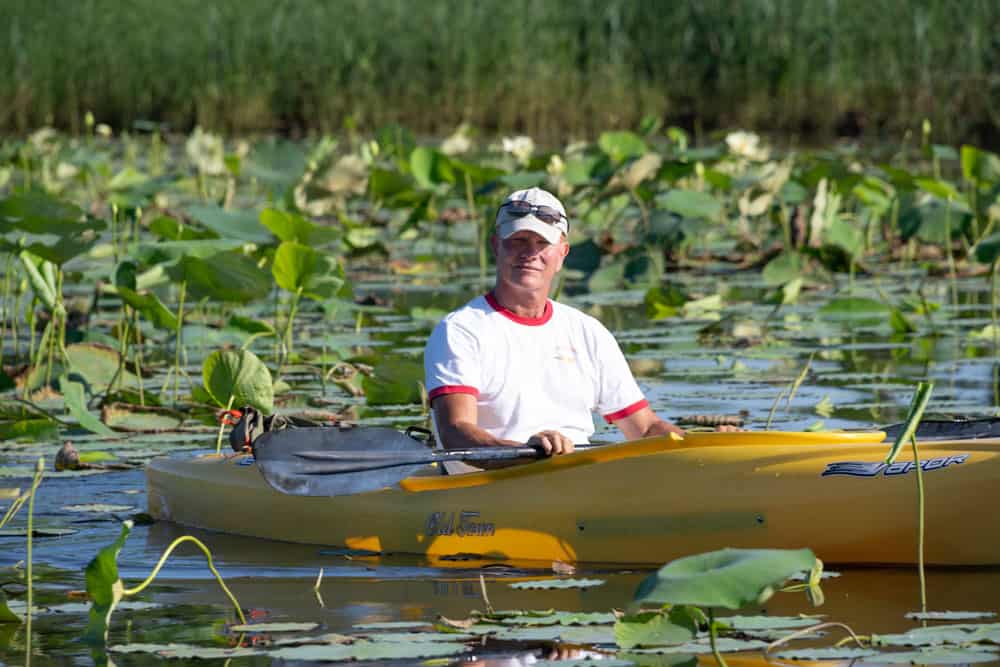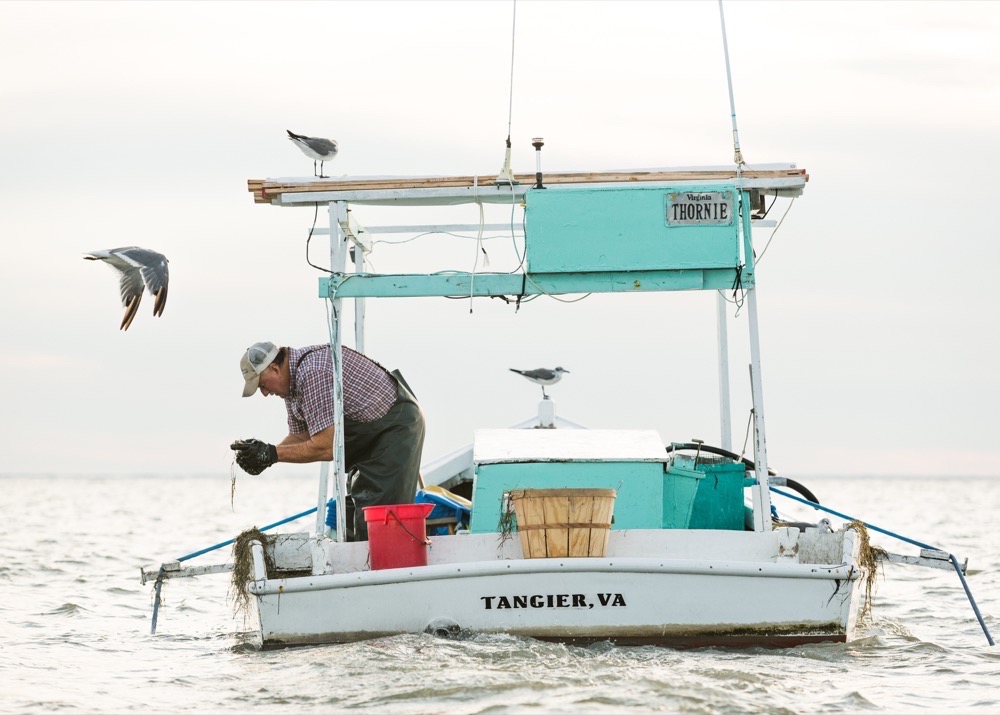The New Oldest Tugboat Man in Baltimore
“When I was young, the old-timers told me they wouldn’t hire a cook on the boat unless they had a big belly…”
Harold W. Thompson, Oldtimer
At age 96, Harold “Captain Doc” Thompson reigns as the oldest tugboat man in Baltimore. He assumed the title this past February with the death of 99-year-old engineer Bill Bobac. Each had curious paths to the waterfront (Thompson with Curtis Bay Towing, Bobac at Baker-Whiteley), nearly impossible in today’s heavily regulated maritime industry.

Marion E. Warren Collection, Maryland State Archives, MSA SC 1890-1-2929. Courtesy M. E. Warren Photography LLC
Bobac originally ran a Pratt Street bar where men from the tugs cashed their checks. Noticing that the mariners made a penny somewhat prettier than his own, he had one of his regulars put in a word for him and was hired by the Arundel Company as a wiper in the engine room. Once on the job, when asked why he didn’t know a fuel line from a feed pump, Bobac replied: “I’m a bartender.” The engineer just shook his head and Bobac learned quickly enough all he needed to know to work the waterfront for years to come.
A fishing pole led Thompson to a long career on the Chesapeake Bay. The son of a tenant farmer who raised wheat, corn and cattle on land across from the old Milton Inn in Sparks (once an 18th-century stagecoach stop), Thompson was fishing at a limestone pond one day during World War II when a nearby angler said he worked on tugs in the city. “He asked if I wanted to take a ride and I went that Sunday,” said Thompson. “I was working [another job] in Curtis Bay so the next day I went down to the pier to talk to the [tugboat] personnel manager. He said, ‘Boy, you’re too young. Get the hell out of here.’ ”
But then the man paused for a moment. It was the Memorial Day holiday, 1943—a good year before the storming of Normandy—and most able-bodied men were in the service. “They were short-handed and the guy said he’d take me on for one day.”
One day turned out to be more than a half-century with Curtis Bay Towing Company as the farm boy worked his way up to captain over the course of a long and respected career. By the time Thompson’s son Sam came along in the 1980s with a yearning for the life of a boatman, everything had changed.
“When I talked to the boss, they said they’d hire me but I’d have to go to school for a couple of years,” said Sam, now 61, a retired heavy equipment mechanic. “I said, ‘You don’t understand, I know this. I grew up with this. I don’t need school, I need a job.’” Management didn’t agree and the missed opportunity is one of the younger Thompson’s biggest regrets.
The master of the tug Cape Romaine when he retired in 1987, Harold Thompson experienced just about everything one can encounter on the Bay, including a few worthy of Ahab. “Did I tell you the whale story?” he asks as we sit in a lobby at the Masonic Home in Cockeysville where Thompson is not—by a longshot—the oldest resident. Not only is he six years behind a woman of 102, she still takes the stairs and regularly beats the old seafarer at gin rummy and pinochle.
All kinds of vessels have come and gone from the Port of Baltimore since Fell’s Point was settled in 1670, from L. Ron Hubbard’s four-masted schooner the Doris Hamlin to friendly warships representing countries around the world. But few have arrived with a leviathan on their bow. Thompson encountered the marvel twice.
“One time I took over a ship from the pilot and he said they’d been losing speed for two days and didn’t know why,” said Thompson of the 1976 experience. “I told him to get his mate to look over the bow—and over it was a dead whale.” He tried to shake it loose “in the stream” of the harbor without luck and, upon docking in Dundalk, called the Coast Guard. The big boys’ solution? Just leave it there. As if the Back River Wastewater Treatment plant wasn’t perfume enough for that hard-working part of town.
“I told him to get his mate to look over the bow — and over it was a dead whale.”
Harold W. Thompson
“I said wait a minute,” recalled Thomspon, “when low tide comes and that whale gets under a pier, it’s going to stink like hell.” The better idea was to call a truck and have the beast hauled off to a soap factory. It happened once more, about five years earlier. “We backed off [and] the wash from the wheel [propeller] forced it off,” said Thompson. “They hauled out to sea and blew it up.”
He was adept not just at dead whales, but dead tows as well. “I worked with Doc when I was a deckhand with Curtis Bay,” said Robert Lukowski, a native Fells Pointer from South Ann Street who recently retired as a docking pilot in Long Beach, Calif. “I remember him as a gentleman who treated his crew well. And he was always sober, which was kind of rare in those days.”
“I remember him as a gentleman who treated his crew well. And he was always sober, which was kind of rare in those days.”
Robert Lukowski
Lukowski is from an old Baltimore seafaring family. His late grandmother, the former Veronica Kisling, was the daughter of a stevedore and ran a boarding house for sailors at 1718 Thames Street, now a seafood bar called Riptide. His uncle, Jerome Lukowski, was a tugboat contemporary of Thompson with Baker-Whiteley tugs that docked on the opposite side of the Broadway Recreation Pier.
Working harbors on both coasts for more than 40 years, Robert said he guided some 18,000 “ship moves” in his career. When it comes to pushing ships in and out of berths, he knows what he’s talking about. “He was a dead ship expert very, very precise in his piloting,” said Lukowski, who remembered Thompson’s work piers along Bethlehem Steel’s Sparrows Point plant. Typically modest, Thompson replied, “I don’t know if I was an expert or not. Everything depended on the wind and the tide. They used to have a lot of ship launchings at Sparrows Point and when one came down the building ways we’d catch ’em and take them to the pier.”
But does a talent for parking ships qualify one for a medical license? “I got the nickname Doc when I was still a sailor,” said Thompson. “I was in the galley studying for my mate’s license and had to get my first-aid certification. An old engineer comes into the galley for coffee and says, ‘What are you going to be, a doctor? You’re too damn dumb to get any kind of license.’”
Where some of the men who ran with the Lukowski boys might have dropped the jerk with a hard right to the jaw, Thompson ignored the man and kept studying. Three weeks later, he passed his Coast Guard exam and received a mate’s license. “We were eating in the galley again, eating breakfast,” he recalled. “I said, ‘Chief, I got something to show you’ and pulled out my license. That’s how it started with Doc. Some guys on the waterfront didn’t even know my proper name.”




